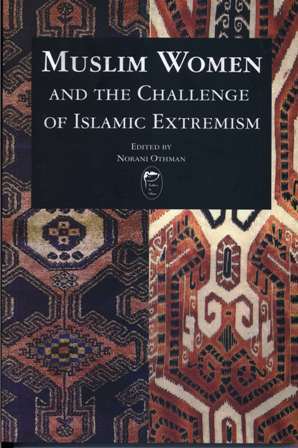Sukania Prem Kumar is interning with the Malaysian Centre for Constitutionalism and Human Rights and in her debut article for the MCCHR, Sukania looks at the decision of the Court of Appeal in the case of Dato’ Seri Syed Hamid bin Syed Jaafar Albar (Home Minister) v SIS Forum (Malaysia). This case is one of the many cases taken up by lawyers of the MCCHR under its strategic litigation component.
‘There is no such thing as a moral or an immoral book. Books are well written, or badly written’. – Oscar Wilde
(Wilde said this in response to the allegations against his own book, The Picture of Dorian Gray that was claimed to be morally corruptive.)
This quote is definitely one to mull upon.

Can we really judge books on ethical grounds and does this supposed judgment overtly supersede our right to freedom of speech? Also, isn’t it our inherent right to decide for ourselves the type of literature we read or not read; or do we have to trust our government to do the filtering for us?
Then again, as much as we would like to live in a Utopian world where absolute freedom of speech is not just a myth, we must not delude ourselves into thinking that freedom does not come without limitations. I’m sure the majority of us would not want to go to MPH and see the shelves stocked with books that criticise the existence of a certain race; or maybe a step-by-step guide on how to murder an individual. While, we rational human beings understand the need to ban certain materials albeit it is arguably a curtailment of our right, this is offset by the fulfillment of our right for it to be done on reasonable grounds.
While we value our Home Minister’s decision, the banning of ‘Muslim Women & The Challenges of Islamic Extremism’ has been proven highly questionable, and has been held as not being prejudicial to public order. The judgment of the Court of Appeal can be found here.
The law in Malaysia clearly states that the Home Minister can ban a book only if the book is “in any manner prejudicial to or likely to be prejudicial to public order, morality, security, or which is likely to alarm public opinion, or which is or is likely to be contrary to any law or is otherwise prejudicial to or is likely to be prejudicial to public interest or national interest”. (Section 7(1) of the Printing Presses and Publications Act 1984)
When reading this, the law seems perfectly legitimate. Why would we be against a provision that safeguards our legitimate interests?
Now, the troubling thing about the Sisters In Islam (SIS) case is the shaky claims that the book was indeed prejudicial to public order. Firstly, the fact that the book had been in circulation for two years without any solid evidence of it being ‘prejudicial’ cannot be ignored. Secondly, only seven pages out of the 215-page book breached the Islamic Publication Material Censorship Guidelines issued by the Islamic Development Department of Malaysia (JAKIM). Is it safe to conclude that these seven pages can hardly be prejudicial as proven by the lack of complaints in the period of those first two years of circulation? It makes you question the validity and relevance of the Guidelines. One of the main Guidelines is that a published material cannot ‘contain any matters that touch on the sanctity of Islam’. This appears to be a very ambiguous Guideline. Perhaps it is time to have a body like SIS to review the Guidelines for relevance in today’s society. It should be noted here that the Court of Appeal held that even if the book breached JAKIM Guidelines, it does not mean that the publication is prejudicial to public order.
Another thing to consider is books that do not fall under the Islamic Publication Material Censorship Guidelines issued by JAKIM for Malaysia but are offensive to other religions? There does not seem to be any published guidelines that addresses that issue.
More than 45 books have been banned in Malaysia since 2003. It makes you wonder if even half of them are justifiably banned. It might be the same case as the SIS book with the exception that no person or group came forward to challenge the ban.
Banning a book on unjust grounds is a breach of our freedom speech and expression. Although the Guidelines are merely guidelines, it is evident that it does carry some weight in deciding to ban a book. Thus, a revamping of these guidelines is called for, as is a call for a transparent and a fair procedure prior to any book being banned! That’s freedom of speech and proof of the rakyat being served.


Nice and its o s m
Nice!